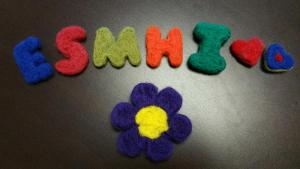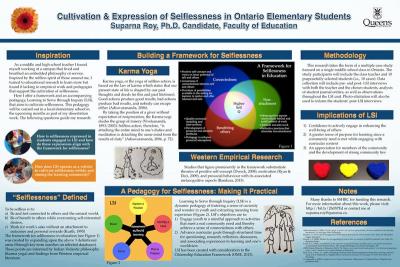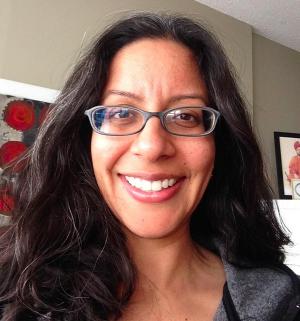 The World of Acronyms at Queen's Education
The World of Acronyms at Queen's Education
An advantage was that I had done my undergraduate, B.Ed., and M.Ed. degrees all at Queen’s so when I entered the world of acronyms (i.e., EGSS, ESMHI, RBJSE), they were familiar and I was eager to get involved. My past role as a middle and high school teacher had me hooked on activities that were service-oriented and therefore I gravitated towards those types of experiences during my PhD Of course, other acronyms like TA’ing, GTF’ing, and RA’ing have also livened things up. To me, these acronyms represent networks of people (staff, students, and faculty) with whom I could build friendships and a sense of community.
 Being Intoxicated in your area of Research
Being Intoxicated in your area of Research
Along with having the types of supports outlined above and clear academic goals, it is important to at least like (if not be hopelessly intoxicated by) your area of research. My past teaching experiences and exposure to Indian philosophy have informed my research on selflessness from the Vedantic perspective – a study that I find truly intoxicating.
To be selfless is to: be and feel connected to others and the natural world, be of benefit to others while overcoming self-interested desires, and work for work’s sake without an attachment to outcomes and personal rewards (Kurth, 1995).
My Research in Learning to Serve through Inquiry (LSI)
To make these facets of selflessness pedagogically viable, I have proposed an approach called Learning to Serve through Inquiry (LSI) that blends inquiry-based learning, service-learning, and an attentiveness to the intentions behind actions. My research design takes the form of a multiple case study in a middle school classroom where purposefully selected students are the cases. My goal is to track the evolution of selflessness as it is cultivated and expressed in these students through an LSI unit and then offer findings in the form of rich narratives.
 A PhD Changes Who You Are
A PhD Changes Who You Are
I have read that how we think informs our actions, our actions inform our habits, our habits inform who we are which, in turn, shapes our destiny (Swami Tathagatananda, 2012). Lyn Shulha (a retired faculty member) would say that an M.Ed. changes the way you think and a PhD changes who you are. Perhaps LSI helps shape thoughts, actions, and character for our younger friends in elementary and secondary schools. Then again, why confine the basics of LSI to the classroom? It can start now and anywhere. We are all lifelong learners. I leave you with one of my favourite quotes:
The education which does not help the common mass of people to equip themselves for the struggle for life, which does not bring out the strength of character, a spirit of philanthropy, and the courage of a lion – is it worth the name? (Vivekananda, 1893/2003, p.1882).
Kurth, K. E. (1995). An exploration of the expression and perceived impact of selfless service in for-profit organizations (Unpublished doctoral dissertation). The George Washington University, Washington, DC.
Tathagatananda, S. (2012). Relief of tension, depression, and anxiety through spiritual living. Kolkata, India: Advaita Ashrama.
Vivekananda, S. (2003). Complete works of Swami Vivekananda. Hollywood, CA: Vedanta Press. (Original work published 1893)